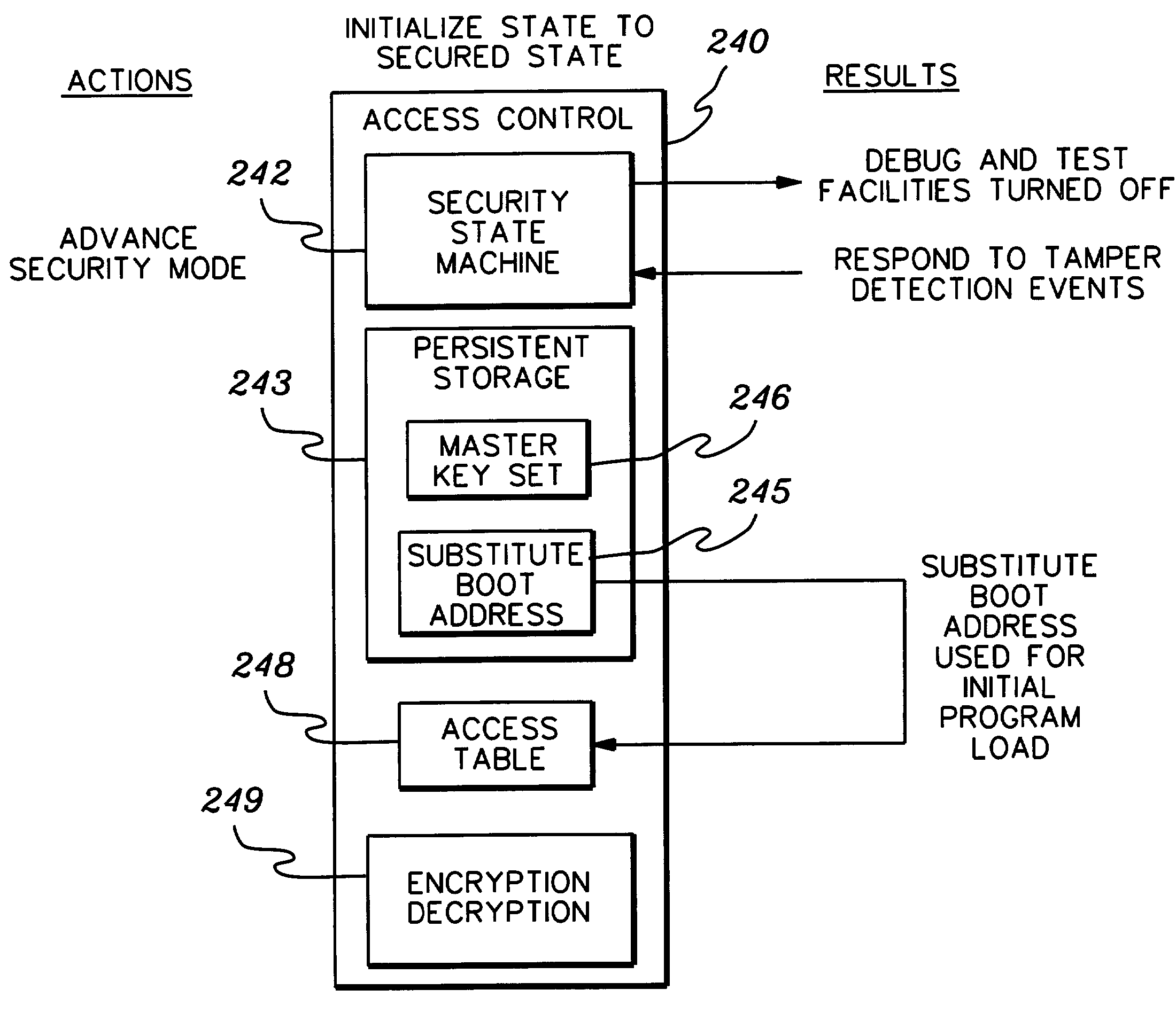Control function with multiple security states for facilitating secure operation of an integrated system
a control function and security state technology, applied in program control, unauthorized memory use protection, instruments, etc., can solve problems such as inability to secure the operation of the integrated system, increase the number of data transfers, and difficulty in accessing external devices. achieve the effect of facilitating secure operation of the integrated devi
- Summary
- Abstract
- Description
- Claims
- Application Information
AI Technical Summary
Benefits of technology
Problems solved by technology
Method used
Image
Examples
Embodiment Construction
[0031]FIG. 1 depicts a conventional integrated device, generally denoted 100, having multiple internal functional masters 1101, 1102, 1103 . . . 110n. Master 1101 is shown as a processor, having a processor core 112 and a memory management unit 114. Internal masters 1101, 1102, 1103 . . . 110n connect in this example to a memory subsystem 120, which includes bus control logic 130 of a shared bus. Those skilled in the art will understand that although shown within the memory subsystem, bus control 130 could alternatively reside outside of subsystem 120.
[0032]Bus control unit 130 coordinates and consolidates requests to slaves in the integrated device. For example, a first slave might comprise an external bus controller 140 which is connected to an external non-volatile memory 150, such as flash memory, having an open memory portion 155. A second slave, memory controller 160 connects to external volatile memory 170, such as SDRAM or DRAM. Memory 170 includes an open memory portion 175...
PUM
 Login to View More
Login to View More Abstract
Description
Claims
Application Information
 Login to View More
Login to View More - R&D
- Intellectual Property
- Life Sciences
- Materials
- Tech Scout
- Unparalleled Data Quality
- Higher Quality Content
- 60% Fewer Hallucinations
Browse by: Latest US Patents, China's latest patents, Technical Efficacy Thesaurus, Application Domain, Technology Topic, Popular Technical Reports.
© 2025 PatSnap. All rights reserved.Legal|Privacy policy|Modern Slavery Act Transparency Statement|Sitemap|About US| Contact US: help@patsnap.com



